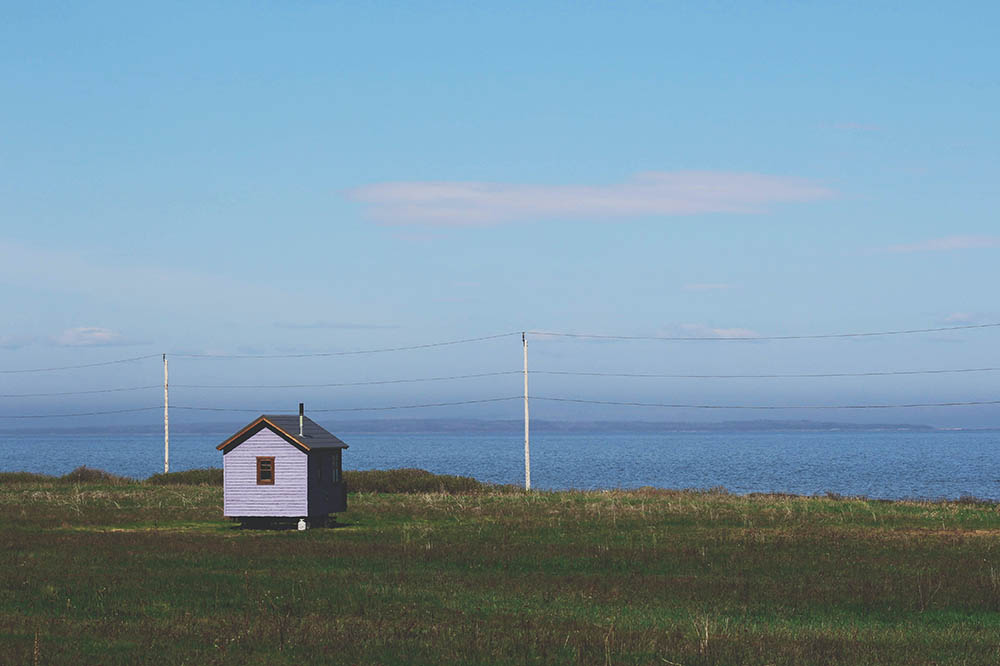Indigenous housing—especially in remote and northern locations—represents one of the intractable problems facing First Nation communities. The high cost of housing in these locations and the never-ending cycle of backlogs plague reserve communities across Canada. Looking into the new year, Canada must pledge to make housing a commitment on the same level as safe drinking water for reserves or the availability of broadband internet. First Nations on reserves deserve equal access to market housing.
Reading government speeches from the throne, the emphasis on Indigenous housing seems to be on the amount pledged and spent, or on the number of housing units built. It is good that the government is rolling out specific targets. However, the real focus should be on working with Indigenous communities to deal with the policy and governance problems that prevent access to mass levels of market housing on reserves. Until the federal government removes restrictive land ownership policies on reserves, First Nations must find clever ways to roll out market housing. Make no mistake, only the private sector can deliver the high-quality housing that reserves need. Government waiting lists will never catch up to need, especially with a burgeoning population in many communities.
One of the principal difficulties, however, is that the consensus within government circles is on transferring management over housing rather than fixing it. Devolving deeply flawed programs or increasing funding for broken ones will not help the problem; it might make it worse. First Nations should lead the needed transformation and challenge the conviction—held by those in Ottawa as well as by many First Nation leaders and elites—that the government should provide, fund, and manage reserve housing. The absence of viable alternatives does not make it any easier to see beyond this thinking.
There is nothing wrong with some degree of social housing to ensure affordable access for some on reserves. This is the case in mainstream communities. The answer is to move towards a shared responsibility model, which brings in local governments and private lenders. Governments have key support roles to ensure this happens. It involves sustaining the legal and regulatory framework for markets to operate in, and ensuring orderly planning of growth and adequate infrastructure, as well as accelerating investments with the right incentive structures when needed.
Also, on a transitional basis, government may provide remedial housing solutions for those who need it, in ways that ensure the same effort is required for the same benefits in all parts of the country. This is something largely handled through transfers of resources across government levels to ensure comparable infrastructure or access to housing loan guarantees at comparable cost across the country.
Many Indigenous communities across the country have already found the optimal balance between private and public involvement in housing. These case studies must be examined and emulated for all. However, much of the main transformation has been staring us in the face for quite some time.
In 2008, the Institute on Governance (IOG)—a non-profit think tank—released a paper on how to improve First Nations housing. Many of its insights and recommendations still hold true and the government should re-evaluate them as it prepares its legislative agenda.
The first area is ensuring that housing is treated like a business. The report found some examples of practices that First Nation communities engaged in that demonstrated this shift in thinking. The first practice involved having an appropriate governance regime in place so that day-to-day housing decisions are divorced from community politics (discussed later). The second involved instituting a variety of housing tenure, from quasi home-ownership to rental regimes, to rent to purchase, to rent subsidies. To shift from communities simply using housing as a social program to viewing it as a business involved developing and enforcing rental regimes and other housing-related policies. In many Indigenous communities, rent is not collected or enforced properly as in other communities. These communities also started charging for utilities like drinking water and electricity. To further emphasize this shift in thinking, these communities also began developing several funding sources to complement government funding (e.g., from individuals, financial institutions, and revolving loan funds).
The second commonality among well-run Indigenous housing policies was in correctly viewing housing as a problem of governance. The report’s authors concluded that for housing to work on First Nations, they needed political will, community support, and managerial and technical capacity. Indigenous communities—through their governments—need to accept housing as a local issue. However, housing is often the responsibility of other entities.
The vast array of federal programs and policies surrounding housing on reserves means it is still viewed as a federal government responsibility towards bands. This situation needs to fundamentally change. Ottawa must stop smothering bands with its controlling policies and its “we know best” mentality.
The Harvard Project on American Indian Economic Development at the John F. Kennedy School of Government long ago identified that economic development on Indian reservations was first and foremost a political problem. Governments must create the institutions to allow markets and services to flourish and then must largely step out of the way. Canada’s Indigenous communities are no different. They also play a critical role in creating fair and transparent rules.
Looking at successful Native American tribes, the Harvard Project researchers also concluded that: “Making the federal government bear responsibility for improving economic conditions on Indian reservations may be good political rhetoric, but it is a bad economic strategy. When tribes take responsibility for what happens economically on reservations and have the practical power and capacity to act on their own behalf, they start down the road to improving reservation conditions.”
Canada’s Indigenous communities should view housing through the same lens. Housing is also fundamentally a political issue, requiring transformational leadership and community support to succeed. First Nation governments must adopt clear and enforceable rules for housing on reserve. One universal observation is the problem of lack of separation between politics and housing authorities. Often, housing decisions are based on political considerations. This must change. The best-run Indigenous housing programs have firewall policies between elected politicians and independent housing committees. The authors define this transformation as a classic problem of “short-term pain” (in the form of rents, utility charges, evictions, restrictions on the use of property, and householder maintenance responsibilities) for “long-term gain” (in the form of improved housing, enhanced individual pride, and perhaps equity, and indirect benefits in terms of better education and health outcomes).
The problem is Indigenous leadership and government do not want to deal with some of the elephants in the room, the first being that the property restrictions on reserves severely limit First Nation lending options for housing. This limits private options for individuals and families on reserves and forces both the band and the federal government to guarantee mortgages for band members. This is a risky and expensive option for all. Although there are public institutions that act to enlarge market housing options for reserve members, it is never enough. 
Rather than just re-announce new spending numbers for First Nation housing, Ottawa should announce that it is reopening the conversation about market housing and private property ownership on reserves. This does not have to be a scary conversation, but one in which the government will help bands every step of the way.
The other elephant in the room is the governance problem at the heart of many housing issues on reserves. It is easier for governments just to announce spending targets rather than to ask First Nations to deal seriously with ongoing housing authority issues.
The IOG report proposes an outside accreditation system for First Nation housing, in which bands would have to adopt certain governance and managerial standards to enter a housing regime. This is the way the International Organization for Standardization (ISO) accredits some bands; outside businesses or partners look for First Nations to adopt these voluntary standards in order to work with them. There would also be clear monetary and non-monetary benefits for being accredited by a First Nation housing body, such as increased access to programs, or better access to credit. The key is that Indigenous bodies run these entities and Ottawa gets out of the way.
In closing, the government should continue its obligations towards First Nations on housing, but it should also introduce a fundamental change in its relationship with Indigenous communities. Government must look at Indigenous housing the same way it views drinking water or internet access for reserves.
While respecting government’s role in ensuring affordable housing, it should make way for a much more prominent role for the private sector and should encourage bands to seriously address the governance problem at the heart of the issue. Only by looking at these issues honestly will both sides be able to provide reserve residents with the access to market housing options that many Canadians take for granted.
Joseph Quesnel is a senior research associate for the Frontier Centre for Public Policy.
Photo by Sigmund on Unsplash.



